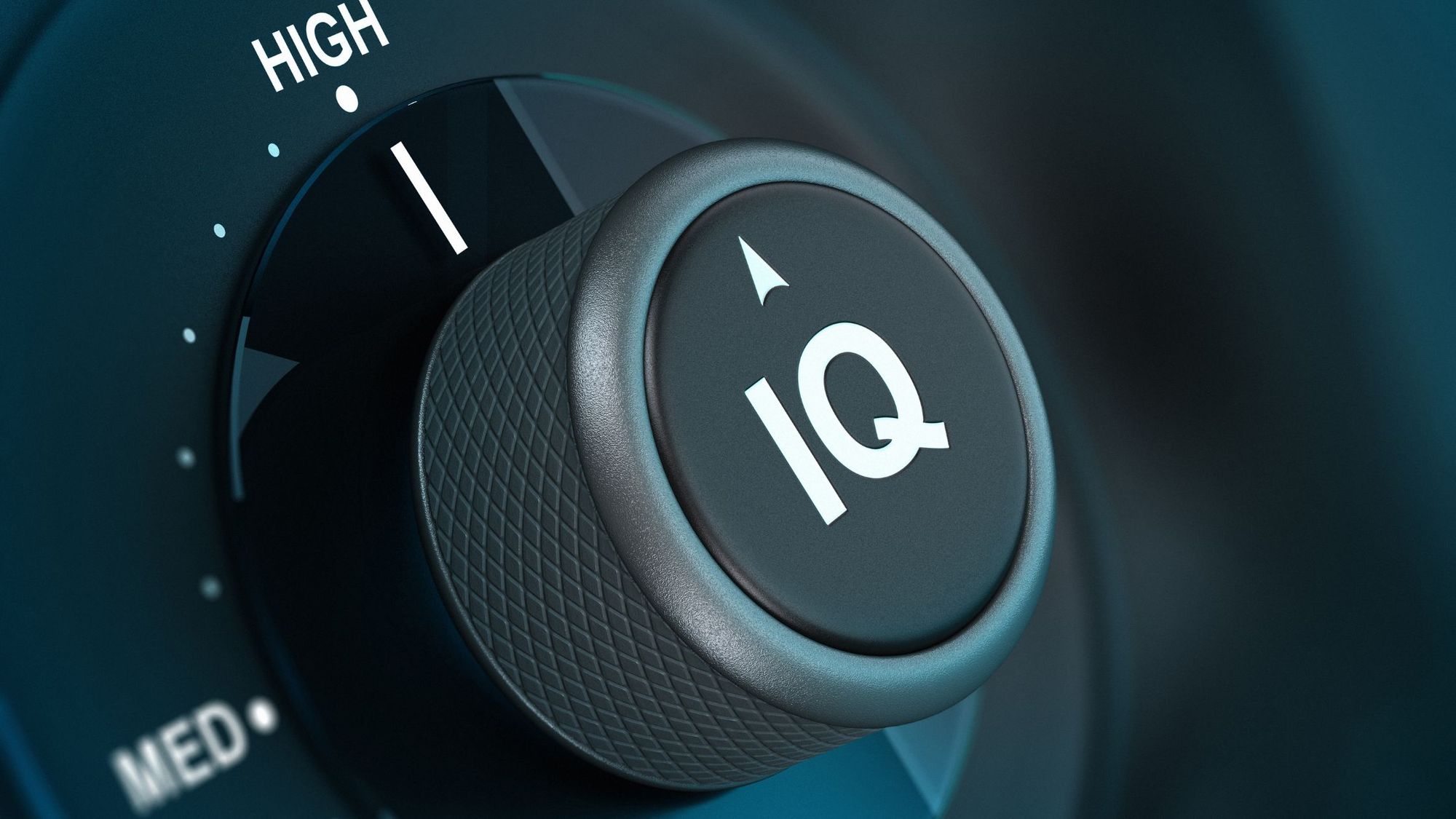
Adversity Quotient might not be something you’ve heard of, but the concept has been making waves throughout the business and entrepreneurship community for years. As a result, one’s Adversity Quotient (AQ) is classed as one of the four types of intelligence quotients, among IQ, EQ (emotional intelligence) and SQ (social quotient).
AQ is defined as one’s ability to withstand the challenges and adversities that life throws at you, and how quickly you’re able to get back on the horse, adapt, carry on, and push through.
For many, the Adversity Quotient is something that can be used to measure your potential success as an entrepreneur. While it is something that comes naturally to many people, resilience is also something that can be learned. As a result, it is possible to improve our Adversity Quotient over time. Let’s take a closer look at what this form of intelligence is all about.

What is Adversity Quotient?
Some people have a higher AQ than others, perhaps due to their DNA, life experience, or environmental factors.
“AQ determines who will give up in face of troubles and abandon their responsibilities. Highly successful entrepreneurs have a high adversity quotient–the ability to recover from setbacks. If you have high determination, you believe you have the ability to confront and overcome insurmountable obstacles.” – Shadab Mobin.
The above quote from Shadab Mobin is a fitting description of Adversity Quotient (AQ). It’s different from IQ in that it’s used to measure how resilient a person is, and their capacity to deal with the obstacles and challenges that are thrown their way. It looks at how well someone is able to maintain their power and standing while overcoming these adversities without getting discouraged – and without giving up.
As a result, AQ is often associated with an individual’s ability to excel and succeed as an independent entrepreneur. It’s all about your tenacity, how you handle failure, and your ability to pick yourself up and start again when things take a wrong turn. When we look at some of the greatest business successes out there, they have all experienced failure and come back stronger.
The prevalence of Adversity Quotient has led it to become recognised as one of the four main types of intelligence. It ranks among the well-known IQ, the underrated EQ, and the lesser-known SQ (which stands for Social Quotient). Each form of intelligence is very different, but they all have their own significance and importance when it comes to what makes us unique human beings.

How Does AQ Differ from IQ?
IQ stands for Intelligence Quotient, and it is a way to measure the innate intelligence that we are born with. High IQ often runs in families and is genetic. On the other hand, AQ, or Adversity Quotient, can be improved through experience, study, personal determination and building one’s resilience. Unlike IQ, one’s AQ is not a dormant quality that can only be altered with hard work – it can be changed through our own willpower and efforts.
Of course, the ways in which we measure intelligence are intrinsically flawed. A person who is skilled in language and able to speak several languages fluently would surely be a sign of high intelligence, but this type of skill might not be reflected in a standard IQ test. In many ways, AQ makes more sense as a way to measure potential success, because of the way in which it evolves with us and our experiences, and because of how important overcoming adversity is in life and in business.
AQ is a form of intelligence that grows and changes over time, and that is surely more representative of human intelligence. While a high IQ has often been praised as the intelligence standard that we should all strive towards, there has been more focus on EQ (emotional intelligence) and AQ in recent years as we realize how much depth the human mind is capable of.
How AQ Impacts Entrepreneurship
Entrepreneurs are typically defined as individuals who start their own business from nothing – from the ground up – based on their own unique idea. Entrepreneurs often try to fill a gap in the marketplace that they’ve noticed, but many entrepreneurs also decide to take a risk by starting a business in an overly- saturated marketplace of similar businesses.
Entrepreneurship is all about taking risks, determination, and making your dreams become a reality. It’s about being a self-made success. It might sound a little cliche, but that’s the main reason why people start their own companies. However, many businesses fail within the first year, and a lot of that is down to an inability to navigate the obstacles (adversity) and struggles that come with running a company.
When we look at the most successful businessmen and women in the world, we see people who have a high Adversity Quotient. Many of them have been through failure after failure before finally landing on the idea and business model that made them the success they are. They took each failure in their stride, learned from their mistakes, and never let their determination dwindle.
All of this is because of AQ. The tenacity of a person and their ability to quickly recover from setbacks is what allows them to reach levels of success that they previously only dreamed of. It’s that belief that hard work will persevere and that if you just put a little more into it, there can be success. In combination with an open mind that’s willing to take risks, it’s unstoppable.
This is the impact of AQ that we see in entrepreneurship. The exceedingly high levels of determination, the desire to snatch up every opportunity, the fearlessness when taking risks even if they could lead to failure. Most importantly, it’s learning from those mistakes and gaining the wisdom needed to do better next time.
Those with a high Adversity Quotient can see failure and adversity as a gift – a learning experience – rather than becoming discouraged or quitting entirely.
How Can AQ be Measured?
Unlike IQ, there is no official test you can take to measure your Adversity Quotient. Instead, we measure it ourselves by examining our resilience and the way in which we handle problems. AQ is something that we study and work on over time so that we can learn to be more hardened to the world and the issues that stand in our way.
Despite the lack of an official test, that does not mean there aren’t variations of AQ measurement papers available. In fact, many workplaces use standard templates that are given to prospective employees so that management can review what their current AQ level is like.
But what about building your AQ and improving your current level? There are ways in which you can start to train yourself to be more prepared and able to handle adversity better.
AQ development often includes:
- Learning to take a step back and examine the current situation in detail
- Resolving that the small details are just as important as the big picture
- Learning to remain on the ball and keep your finger on the pulse of the way the business landscape shifts
- Actively seeking constructive criticism so that you can grow and improve
- Learning to have more faith in yourself and to build self-belief while not giving into self-limiting beliefs
- Keeping things in perspective and not dwelling on mistakes or failures
- Learning that a positive outlook throughout the company is beneficial
- Discerning that there is nothing wrong with making mistakes, and failure is a valuable learning curve
Final Thoughts
Adversity Quotient is definitely one of the most interesting forms of intelligence. The way in which we can grow and improve our AQ makes it one that can be mastered over time if we have the determination to do so. If you’re looking to start your own business endeavors, it might be worth seeing what your AQ is like and what you can work on.
If you’re interested in finding out how genetically gifted you might be, have you considered a DNA test from CircleDNA? The results can tell you a lot about yourself, including whether you are genetically more likely to have a high AQ, IQ, or EQ, as well as possible genetic personality traits. Your DNA test can even help you uncover hidden talents, such as genetically being likely gifted at math, or gifted at music or dance.
References:
- Linkedin.com. Published 2023. Accessed January 26, 2023. https://www.linkedin.com/pulse/adversity-quotient-entrepreneurship-shadab-mobin/
- Measuring Your Adversity Quotient. Los Angeles Times. Published May 18, 1998. Accessed January 26, 2023. https://www.latimes.com/archives/la-xpm-1998-may-18-ss-51010-story.html





